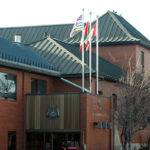Home »

UNDRIP adoption changed the rules in B.C.
Letter to the Editor
Most Canadians, if asked, would say we are a fair, liberal and reasonable people. But we are, in truth, rather smug, mainly urban hypocrites who turn a blind eye to the plight of First Nations Canadians.
We look at the U.S. with five per cent of the global population but 20% of those in prison with a good deal of disdain.
But if told that First Nations Canadians, who are some five per cent of our population, make up over 30% of the people incarcerated in our prisons most would likely be surprised. In 2001 it was only 17.6%. And the problem in the Prairies approaches a scandal. Poverty and systemic racism in the police and courts have First Nations in 2020 at some 54% of the prison population in the three provinces.
And we all agree that the intrusion of Brazilian farmers and miners into indigenous lands in the Amazon is horrible. But if the hereditary chiefs of the Wet’suwet’en in want to stop a pipeline from crossing their ancestral lands injunctions must fly, the RCMP must make arrests and industry must prevail. No First Nation can stop progress.
But in November 2019 the situation in B.C. changed and perhaps radically. The NDP government of Premier John Horgan adopted as law in B.C. the United Nations Declaration of the Right of Indigenous People (UNDRIP).
B.C. is the first province to do so. The federal Liberals, who mouth fine platitudes about reconciliation with First Nations and even have a minister in charge of reconciliation, allowed former NDP MP Romeo Saganash’s private members bill to make UNDRIP part of federal law to die on the Senate order paper last June. No mention has been made of reintroducing the legislation.
Before UNDRIP the law in B.C. was relatively clear. With First Nations that have never signed a treaty ceding its land in the process since 1997 of settling land claims, industry and government have an obligation to consult with First Nations before intruding on land claimed. But the obligation to consult First Nations does not give the right to refuse a development if proper consultation is completed. The courts decide what is proper consultation.
With what is essentially a revolt across the country in defiance of court injunctions and in support of the refusal of the hereditary chiefs of the Wet’suwet’en to permit LNG Canada’s pipeline to cross their territory, the opportunity to consider how UNDRIP has changed the law in B.C. should be pursued.
The seminal article in UNDRIP is article 26. First Nations have the right to the lands, territories and resources they have traditionally owned, occupied or otherwise used or acquired. This is broadly consistent with the law settled in Supreme Court of Canada (SCC) cases.
But then comes the spanner that may have turned the balance in favour of the Wet’suwet’en. Article 26 (2) states First Nations in B.C. have the right to own, use, develop and control the lands, territories and resources that they possess by reason of traditional ownership or other traditional occupation or use. Control means LNG Canada can be told to go somewhere else to build its pipeline.
And finally B.C. is obligated to give legal recognition and protection to these lands, territories and resources with due respect to the customs, traditions and land tenure systems of the indigenous peoples concerned.
UNDRIP and article 26 have not been considered by a court. Without a negotiated settlement, LNG Canada and its contractor building the pipeline, Coastal Gas, and the Wet’suwet’en are likely to be in a few years before the SCC. But the ground game in B.C. has changed. The Wet’suwet’en hereditary chiefs have a legal reason to refuse this pipeline. They have under B.C. law control over their ancestral land.
The leadership of John Horgan has shown Canada the path to a more just and fair society. But will the rest of Canada follow?
Gary Mac Donald,
Cranbrook







